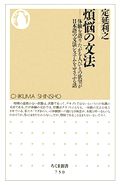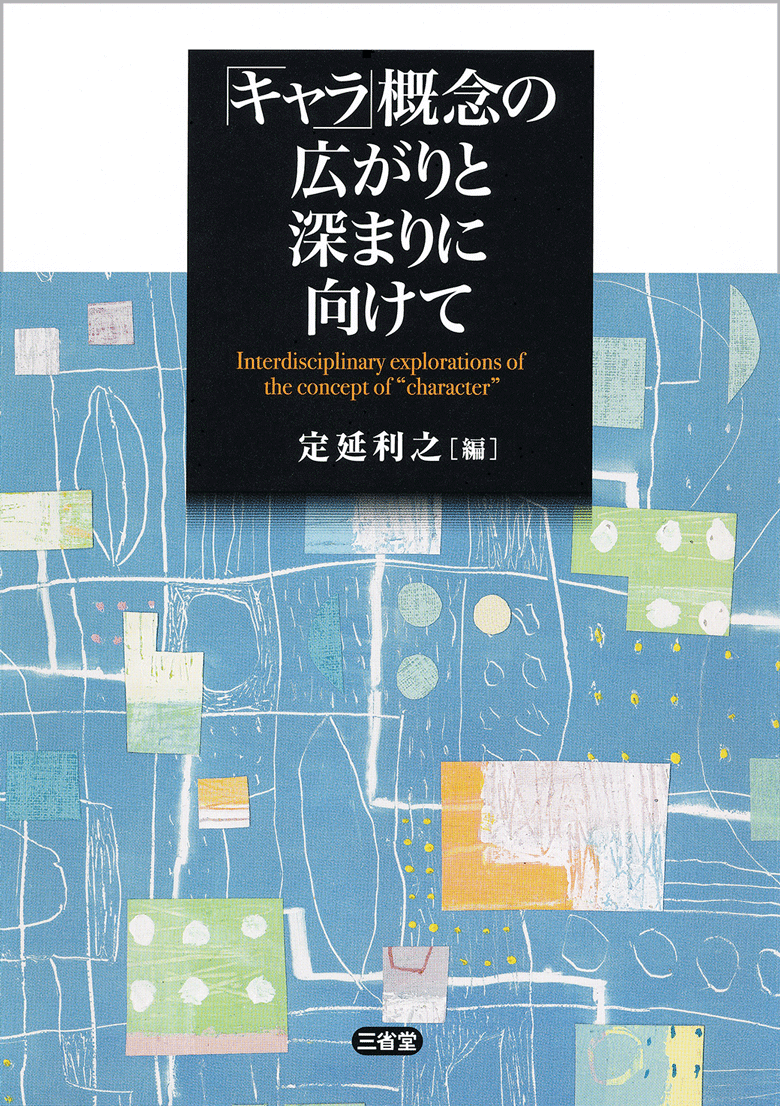
“I’m strange, you know.”
“I’m pretty selfless.”
These utterances ask that the listener to think of the speaker as “strange” or “selfless.”
But no one would take them at face value. In all likelihood, the listener will say: “Oh, really?” while thinking: “Idiot!” She is simply going along with speaker for the time being so as not to embarrass him.
Nevertheless, young or old, male or female, no one is able to resist making such statements. When a middle-aged man casually announces: “When I was young, I was sharp as a razor,” I suppose he means: “Think of me in my youth as a razor, and think of me now as a mellow adult.”
Why do we constantly say “I’m this or that sort of person?”
And why do these announcements inevitably fail to have the effect the speaker intended?
I am concerned about criticism of Bonnou no Bunpou(1) , (Chikuma Shinsho) which I recently published. However, I’m not alone in such matters. With the exception of people who are totally removed from secular life, we have no alternative but to live our daily lives within groups, judging one another, worrying about the judgments handed down on us by others, and yo-yoing between joy and depression.
There are various types of “judgment.”
There is judgment of our works (“that book was interesting/boring”), of our abilities (“she’s a good/poor singer”), and of us as people (“that guy is cool/serious/vulgar”).
For us, the most critical of these are judgments of us as people.
“I want people to think of me as a good/cool/sexy individual.”
“I don’t want to be thought of as a bad/vulgar/ugly person.”
We constantly keep these thoughts in mind when picking our clothes, putting on make-up, doing our work, and telling our jokes (of course there is more to us than this internally).
In wanting or not wanting to be judged, it is understandable that we find ourselves wanting to say: “This is how I am. Judge me this way.” So, why does this approach fail?
It is because judgments of people, unlike judgments of works or abilities, are unaccustomed to intentional performances.
In judging a work, for example “the limoncello at Ristorante Caruso is tasty,” even if this property of tastiness has been intentionally created by the chef –that is, even if the chef decided he wanted people to judge it to be tasty—and even if we accept that the tastiness is the result of the chef’s efforts (as it probably is), it doesn’t harm us in any way to admit this. The same is true for judgments of people’s abilities, such as “Chef Matsumoto is talented.”
However, it is not so with judgments of people themselves, such as “that professor is a superb human being.” If the professor’s superb qualities are the result of her intentionally seeking the judgment of “superb human being,” and if her efforts to be thought of as “superb” are detected, then this professor is not, by definition, a superb human being.
Judgments of people are a type of natural judgment, akin to “that’s a beautiful mountain” in that they are strangers to intent. This is why declaring “I am this or that kind of person” only digs one into a deeper hole.
So, how do we entice others to judge us as we wish? (To be continued.)
* * *









(1) SADANOBU, Toshiyuki. Bonnou no Bunpou: Taikien wo Kataritagaru Hitobito no Yokubou ga Nihongo no Bunpou System wo Yusaburu Hanashi (The Grammar of Earthly Desires: The Story of How the Desire to Relate Experiences Shaped Japanese Grammatical Systems). Chikumashobo Ltd., 2008